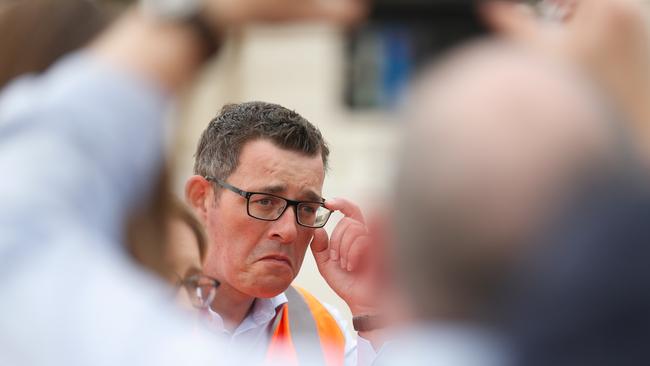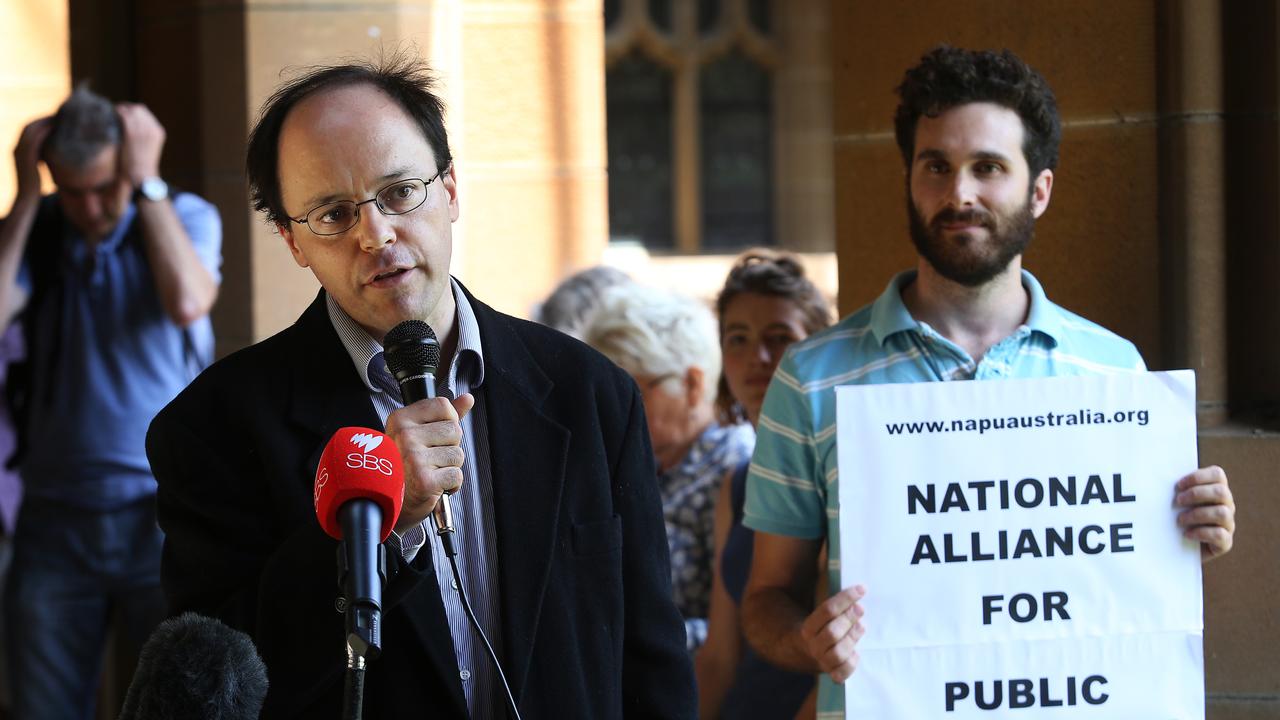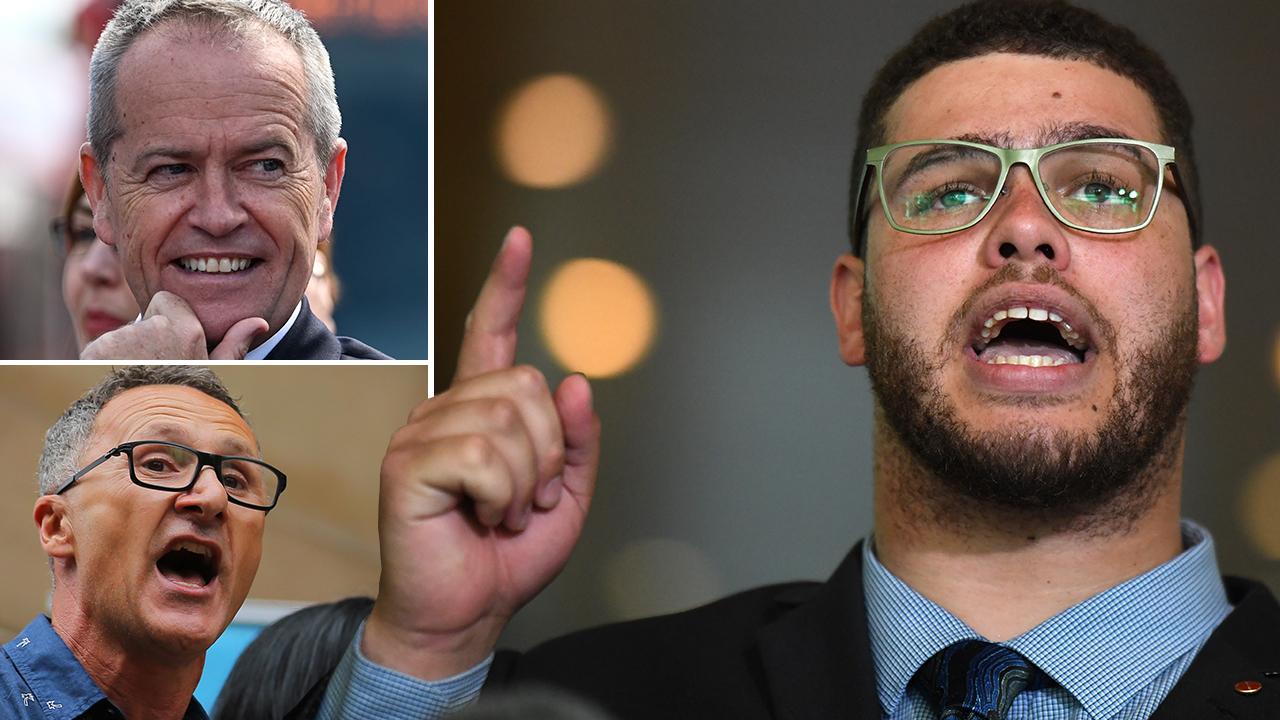
“The supreme art of war is to subdue the enemy without fighting,” wrote the ancient Chinese general and strategist Sun Tzu. With that in mind, you need not be a scholar of international relations or warfare to recognise China’s $US1 trillion ‘Belt and Road’ Initiative is built on that philosophy. Ostensibly a global trade and infrastructure enterprise to create land corridors and sea routes in the name of mutual economic benefit and harmony, its underlying principle is restoring glory to the Middle Kingdom through hegemony.
At first glance the BRI is an attractive option, especially for developing countries with little infrastructure. For them the prospect of loans for new railways, highways and ports is enticing, as is their belief that transit countries will fill their beaks through trickledown. But its potential for boosting local employment is limited by China’s insistence that it supplies the workers for these projects. Also, there is great pressure on these countries to reduce tariffs, thus limiting their revenue.
And then there is the $US900 billion in loans underwritten by China. By some estimates, more than half the 61 countries committed to BRI projects have credit ratings below investment grades. Many of them have poor governance, unstable economies and are riddled with corruption. So why China’s risky strategy, dubbed as “debtbook diplomacy”? As Harvard Kennedy School scholar Sam Parker told the Australian Financial Review this May, “China is loaning hundreds of billions to countries that often can’t afford to pay it back, and it is going to want something in return for that money.” You guessed it: the collateral for these loans is not physical assets, but sovereignty itself.
Malaysian Prime Minister Mahathir Mohamad warned in August the BRI was a “new version of colonialism”. In February, then German Foreign Minister Sigmar Gabriel described it “not [as] a sentimental nod to Marco Polo, but rather … an attempt to establish a comprehensive system to shape the world according to China’s interests”.
The federal government has rightly rebuffed BRI, having last year heeded the concerns of officials including Department of Immigration secretary Mike Pezzullo and then Defence Department secretary Dennis Richardson, not to mention many of those in the national security community. After consulting within the federal sphere, the government probably thought Australia was in accord with its views on BRI. No-one then likely considered the possibility of a provincial buffoon encroaching on international diplomacy to the detriment of his country.
Bernie Finn: The trouble with this bloke (Daniel Andrews) is, he's literally out of control. He is absolutely addicted to secret deals. What the Labor party can do with this bloke I'm not sure, but the people of Victoria can get rid of him.
— Sky News Australia (@SkyNewsAust) November 7, 2018
MORE: https://t.co/KqPpErwlCz #Credlin pic.twitter.com/O10ooChxTP
That changed on October 25 when Premier Daniel Andrews and Chinese ambassador Cheng Jingye finalised a memorandum of understanding, making Victoria the first and only state to formally pledge to the initiative. Although the Department of Foreign Affairs and Trade was consulted on the subject of the MoU in June, it was not privy to the final draft. The federal government only became aware the document was signed after it was publicly announced last month.
Doubtless Andrews, who goes to the polls on November 24, was enthralled by the thought of announcing a jobs and trade bonanza. Yet it appears he also wanted both to embarrass and undermine the federal government. Certainly he had motive, for each government has priors for intruding into the other’s bailiwick purely for political purposes. Andrews started this in 2016 by posturing in the name of asylum-seekers, and Home Affairs Minister Peter Dutton returned the favour with gusto over the state’s failure to deal with the burgeoning African gang crisis. Such behaviour, while unedifying, was still within the category of political argy-bargy.
A staffer in Daniel Andrews’s office has been linked to China’s United Front organisation, which co-ordinates Beijing’s overseas influence operations, amid growing criticism of the Victorian Premier’s decision to sign up to the Belt and Road Initiative https://t.co/JTJFaFg2gL
— Geoff Chambers (@Chambersgc) November 7, 2018
But Andrews’ latest stunt goes far beyond cocking a snook and it has serious implications for Australia’s foreign policy. He made the federal government look both impotent and inept internationally, which was exacerbated by its mixed response. Prime Minister Scott Morrison on Tuesday publicly raged about the lack of consultation, while Foreign Minister Marise Payne lamely said “We encourage the states and territories to expand opportunities with China.” It is not just Payne who looks weak. So too does Opposition Leader Bill Shorten and Shadow Foreign Minister Penny Wong, both of whom have not yet publicly denounced Andrews.
The victory this represents for China at Australia’s expense cannot be stressed enough. It is one thing to successfully cultivate a tin pot dictator of a developing country; it is another to solicit and manipulate politicians at the highest levels of government of an advanced Western nation.
The timing of the announcement is designed to rattle Australia as much as possible. Payne arrives in Beijing today to meet with her Chinese counterpart, the first after a year-long freeze in relations. It will be a challenge for the normally inscrutable Chinese to suppress their smirking in the knowledge that Australia does not speak with one voice on BRI and cannot stamp its authority at home. She is compromised.
This beguiling of Andrews by China is both long term and methodical. He paid his first visit there as premier in 2015, only a year after he took office. In the following year he formalised Victoria’s so-called ‘China Strategy’ agreement. As part of this not only did Andrews undertake to return annually: he also directed that each of his ministers would travel to China “during the first and subsequent terms of government”.
Katie Allen: We've had a Labor government in Vic for 15 of the last 19 years. This Andrews Government; power corrupts and absolute power corrupts absolutely. Vic is going it alone with China when it should be working with the government.
— Sky News Australia (@SkyNewsAust) November 7, 2018
MORE: https://t.co/KqPpErwlCz #Credlin pic.twitter.com/UIIO4vbgik
In 2017 Andrews piously and pointlessly apologised to the Chinese community for the discriminatory policies their ancestors endured during the Gold Rush 160 years ago. That same year he became the only state premier to be invited to the Belt and Road Forum in China. In May this year, on the eve of his visit to China, he castigated the Turnbull government for its handling of the relationship, saying it should “take a different tone” to emphasise “mutual benefit” and “respect”, adding “I don’t think we’re travelling particularly well over there [China] at the moment.” How ironic the same Premier who qualified this by saying it was important for Australia not to be “grovelling” now surpasses disgraced former Labor senator Sam Dastyari in the kowtowing stakes.
To add to the disconcertment is the confidential nature of the MoU. Andrews has falsely claimed this is standard for such agreements. As Nine’s political correspondent Chris Uhlmann told Neil Mitchell of 3AW yesterday, both New Zealand and Latvia’s agreements with China have been made public. Also, there is the question of what benefit Victoria derives from joining BRI given it already trades with China. “It is extremely unlikely he will even get any marginal financial advantage for Victoria,” wrote Greg Sheridan, The Australian’s foreign editor, yesterday.
The belief that Andrews has acted with monumental recklessness is not just that of this newspaper. Peter Hartcher, political and international editor for the Sydney Morning Herald described BRI as a “Trojan Horse” and said Andrews had joined the “busted arse club”.
For the record, I've no idea why Victorian Premier Daniel Andrews hasn't made the MOU with China public. As far as I'm concerned he should. But the anti-China TPP was also kept from the public, as are many government-business deals through the scam of "commercial in confidence".
— Robert Barwick (@RobbieBarwick) November 6, 2018
Former Labor senator Stephen Conroy said “China was playing Australia on a break”.
Stephen Conroy: I think China is playing Australia on a break at the moment. It likes to punish, reward and play people against each other. I don't think Vic should have a secretive document, but it doesn't commit the state to anything.
— Sky News Australia (@SkyNewsAust) November 6, 2018
MORE: https://t.co/irpr0ka3SC #Credlin pic.twitter.com/bwaJe6LBKu
“Victoria’s been played for mugs by the Chinese Communist Party,” said Uhlmann. “It’s trying to split up our national politics and Victoria has played directly into its hands.” The arrogance of Andrews believing he had the measure of the Chinese and could use them for his purposes is truly astounding. Did he think it would be as easy as dealing with the comrades of the Construction, Forestry, Maritime, Mining and Energy Union or the United Firefighters Union? He might want to reflect on what would happen to a high-ranking Chinese politician who put his own interests before his country. Let’s just say that unlike the case in Victoria, ministers suspected of committing crimes against the state do not have the luxury of refusing to cooperate with police.
You wonder if Andrews has paid even scant attention to developments in Australia’s neighbourhood. He has probably never read former foreign minister Gareth Evans’s warning that Laos and Cambodia are now “wholly owned subsidiaries of China”. We can take it for granted he does not know of a Harvard University report prepared for the US State Department which concluded China is “positioning itself to capitalise on the impending fiscal distress of Pacific Island countries”.
Just think only in April China held discussions with officials from the debt-laden Pacific nation of Vanuatu that could potentially lead to the establishment of a naval base only 2000 kilometres from our shores. Meanwhile our nearest neighbour Papua New Guinea has been accepting loans from China it cannot afford to pay. Just last December a desperate Sri Lankan government, unable to pay its BRI loans, ceded to China Hambantota Port for 99 years, together with 15,000 acres surrounding it.
Obsessed with his petty posturing, Andrews probably never contemplated that placing his chop stamp on this MoU conferred BRI with a moral legitimacy it never deserved. Consequently, Canberra no longer has the credibility to successfully lobby its Pacific neighbours to resist China’s overtures. We have only just begun to see the consequences arising from the folly, due entirely to the vainglorious and delusional thoughts of Chairman Dan.




